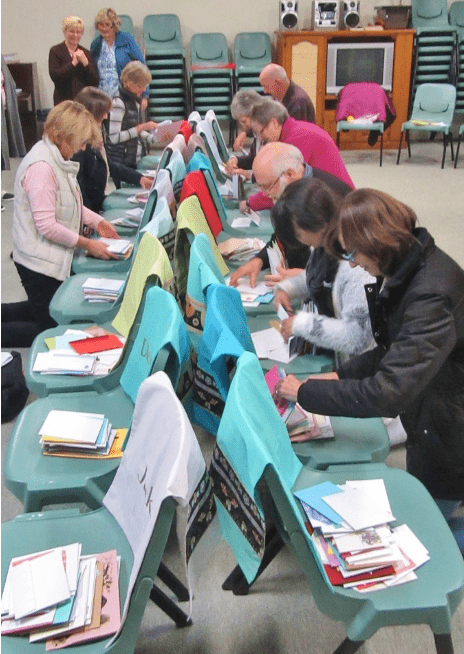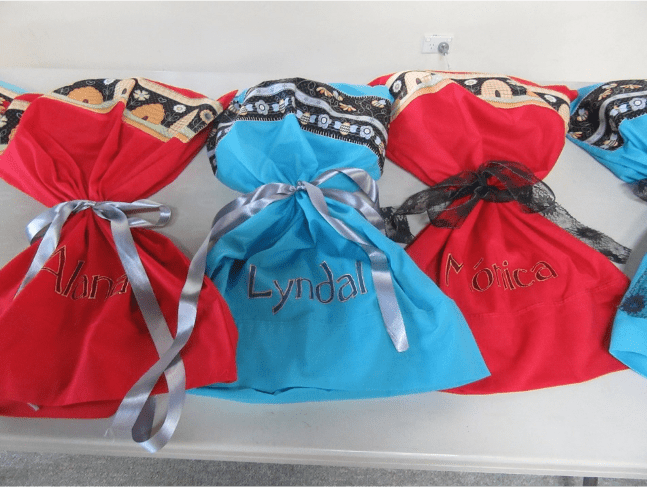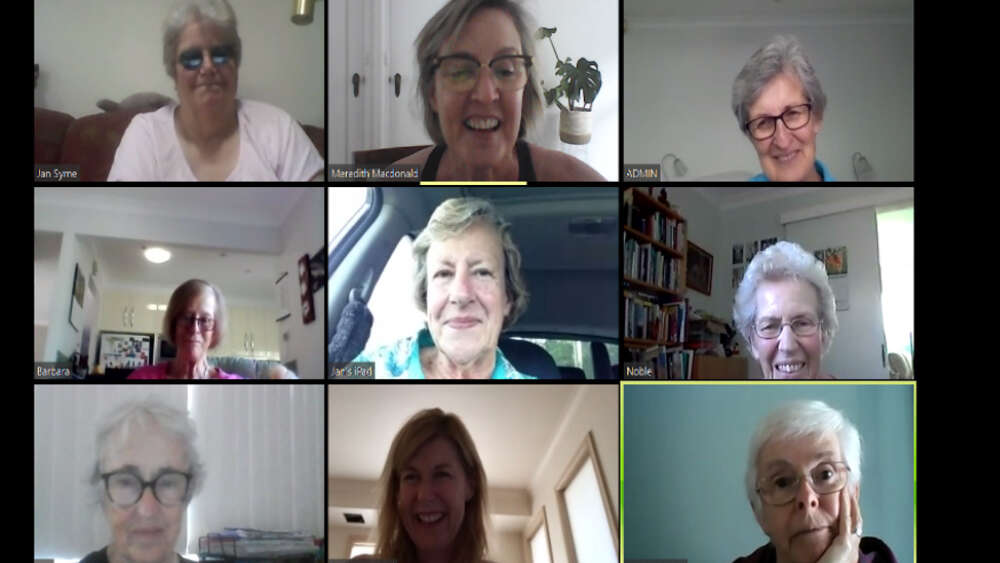Most of the inmates at Emu Plains Correctional Centre – a minimum-security women’s prison on Sydney’s western edge – are longing to get out. However, there is another group of women who are desperate to get in.
These women are members of a Kairos Prison Ministry team.
“From March until Christmas last year, all visitors, whether volunteers or family visits, were stopped,” explains Emu Plains Kairos team member Meredith Macdonald.
“So the women were not getting visits from anyone. They found that really, really hard and isolating. Many of them were feeling that ‘we’re being punished’, but it was actually that prison authorities were doing an amazing job of keeping the virus out of the prisons …
“Because the women have been feeling very isolated, we have been desperately wanting to get back in. Apart from anything else, we want to support them. But we also want to show them that it’s not that they’re being punished, but they’re actually being protected. We want to get back in as soon as possible.”
“A real essence of [our ministry] is that we are there, showing the women love …” – Meredith Macdonald
While family visits were allowed again last December, Macdonald expects the Kairos team could be waiting until the COVID vaccine is distributed before they can recommence visits.
Before COVID hit, members of this committed team – of around 25 Christian women from different denominations – would head to Emu Plains Correctional Centre every Wednesday to spend time with the inmates. This happened 51 weeks of the year (with only one week off at Christmas).
This weekly visitation is what Kairos describes as the “Journey” program, the follow-up to a four-day intensive “Short Course”. Women in the prison are invited to attend the course which runs annually around May.
“It’s four days of intensive loving, basically,” explains Kairos team member Meredith Macdonald. “It’s an intensive week of helping them come to understand who they are and who God is, and the relationship that they could have with God and how life might look different.
Macdonald goes on to describe the Journey program: “We only get to go in for a very short period of time. But it’s a bit like a fellowship meeting where we go in and sing some songs, somebody does a little talk and we have some time to pray. And previously, we would have afternoon tea, where we were able to take in tea and coffee and sometimes some treats for them as well.”
“The fact that we would choose to go in every week really baffles them … they feel almost overwhelmed by being welcomed and loved.” – Meredith Macdonald
But when COVID put a stop to prison visits in March 2020, it threatened to suspend Kairos’s ministry altogether.
“One of the really essential things about Kairos is that we are going in – it’s our presence as a physical embodiment of God’s love to those women,” explains Macdonald.
“A real essence of [our ministry] is that we are there, showing the women love by the consistency of being there every week and being willing to be part of their lives.”
She notes that this physical presence is key in the ministry’s impact on women in the prison.
“Every week we would show up and most weeks somebody would say, ‘Why are you coming here? Why do you want to come and visit us every week? …
“They are just blown away by the fact that there is a group of women who would come in and spend our own time, without being paid, without being coerced, to be with them. Because largely, they consider themselves to be unworthy, unlovable, unwanted and rejected by everybody around them.
“So the fact that we would choose to go in every week really baffles them. And we would greet them every Wednesday with smiles and hugs. And they would feel almost overwhelmed by being welcomed and loved.”

Sorting letters for inmates, written by Kairos team members and supporters.
In order to continue to show this love to inmates throughout the pandemic, the Kairos team had to get creative.
“We didn’t want to just pull back,” says Macdonald, adding that the Emu Plains prison chaplain Bernard Ellis – who had invited the Kairos team into the prison in the first place – also didn’t want their ministry to simply be put on hold.
And so Ellis volunteered to run a “chapel Kairos” each week.
“Each week we supply – for his Wednesday afternoon meeting – a devotion or some material that he could use with the women,” Macdonald explains.
“We send in songs, CDs and music, so that he can continue running a version of Kairos every week – partly to support him week-by-week by having material, but also just to keep the memory of Kairos in there. Not for the sake of Kairos itself, but so that the women would know that there is a team of women outside praying for them every week and supporting them, just reminding them of that message that we wanted them to know God.”
“It was a letter of encouragement and support, just reminding the women about God’s love.” – Meredith Macdonald
At the same time that the Kairos meetings are happening inside the prison, the team meets over Zoom to touch base and talk about what’s happening in that session.
“And then we all go and pray, so that while they are meeting, there are women from all over Sydney praying for them,” says Macdonald.
The Kairos team has also been using letters to express love to the women in the correctional centre. “Each week we would organise for one team member to write a letter to the women, and we called that ‘letter from home’.”
“It was a letter of encouragement and support, just reminding the women about God’s love. So it might be sharing a [Bible] verse … It was a way of saying, ‘Hey, we haven’t forgotten you. We can’t come in and see you, but we’re still here. We’re still praying. And we still want you to know our great God and we will be back.”
While the letters were initially emailed to Ellis for him to read out to the women, Macdonald says the women loved receiving them so much that they began asking for a copy.
“So we then started prettying them up so that [Bernard] could print a copy and each of them would have a copy of the letter each week,” she says.
“That’s a pretty precious thing. We feel that if they had collected or read those letters, they would have scripture each week in those letters and encouragement each week that they could keep looking back on.”

Pillowcases containing letters of love for each inmate doing the Kairos Short Course.
Christmas last year was a particularly hard time for the women in the prison, MacDonald explains.
“They went without visits from March until Christmas. While many of them were able to do Skype visits if they could make the technology work, there were just so many things that complicated that … [It was] really, really sad. It was breaking our hearts.
“Most of these women are mums, and they have the same kind of fears and concerns for their young children that we, as mums on the outside, have – but without the possibility of having any influence or control in their lives.”
While family visitations were allowed in time for Christmas, many women missed out due to COVID restrictions on those living interstate or in Sydney hotspots.
So the Kairos team sent in a Christmas gift for every woman in the prison – not just those who had participated in their programs.
“It was a little pamper pack with writing paper and gel pens, and some Christian material as well, a copy of Mark’s gospel, and a calendar with beautiful photos of Australian scenery and Psalms, and some lollies and toiletries. They were absolutely blown away that they could get that because for most of them, there were no [other] Christmas gifts.”
“Bernard dressed up as Santa on Christmas Eve and delivered them. And most of them put them under their pillows or somewhere else, so that they could open them up on Christmas morning. No doubt some of those goodies were passed on to their kids, if they were allowed to, because they were not able to give other gifts to their children.”
A surprisingly fruitful season
In the seven years that Macdonald has been part of Kairos she has seen women “rekindle their love” for Christ and “come back to cross”. She has also seen some “miraculous, lightning-bolt” conversions, and seen transformations as “the weight of guilt and shame” is lifted from women’s shoulders.
The Kairos team has also witnessed “the Spirit” of God transforming the bleak atmosphere of the prison.
“The prison authorities are not necessarily Christian, but they love Kairos because they can see that when the Spirit is at work, that there is calm, that there is peace, that there is unity when there are programs going on that encourage people to think about their behaviour,” says Macdonald.
One of the surprising outcomes of the COVID period is that the strength of God’s Spirit has been working perhaps even more strongly in Christian women in the prison.
“There are women there who were Christians before they came to prison. But often these women don’t have the courage to show their faith because it’s a pretty scary place, it’s a pretty hostile place. Some people in there are looking for ways to control and harm other women; you know, most of the women in there are damaged. So there’s a lot of bullying, a lot of gang work,” Macdonald explains.
“So if you were openly a Christian, at times you could be picked on and you could have harm done to you. Not particularly because you’re a Christian, but because you’re different or you might be considered weak.
“But when programs like Kairos are in [the prison], it provides a fellowship and it provides a sisterhood, I guess, and it encourages women to live their faith in a hard environment. So they know that they’ve got allies and they’ve got other people who they can trust and rely on. It gives women the courage to have Bible studies and to talk about their faith.”
“One great positive of the COVID horror year was that … the women were fellowshipping and enjoying Christian community together on the inside, in our absence. This is a great answer to prayer.” – Meredith Macdonald
This was particularly true during COVID, when the Emu Plains women prisoners took it upon themselves to keep their Christian fellowship happening.
“A major aim of Kairos is to model fellowship to the inmates, with the goal that as their understanding increases, they start to practice Christian community within the prison. We encourage them to meet and ‘fellowship’ without us,” Macdonald says.
“One great positive of the COVID horror year was that, while we were praying, supplying devotional material and sending letters of encouragement from the outside, the women were fellowshipping and enjoying Christian community together on the inside, in our absence. This is a great answer to prayer.”
And while numbers at the makeshift Journey Program have dwindled from around 30 pre-COVID to only eight currently, Macdonald says this also has a silver lining.
“At times Bernard would feel a bit discouraged, but when there were only a few [women], the most amazing things would happen. The women would support and encourage each other, and it would allow for more personal and intimate fellowship.”
She adds: “And [Bernard] would say that week after week, the material that we had supplied miraculously met or fitted a particular need at that time. So there was a week about feeling alone and cut off, and in that week the women were told that they couldn’t have their family visits.”
“Every week there would be a comment about [the material] meeting a particular need of a particular woman at that point.
“And we would say, ‘Well, yeah, it’s miraculous to us, but God knows what each of these women needs.'”
Eternity will soon publish the story of one former Emu Plains inmate whose life was transformed through Kairos. Stay tuned!


